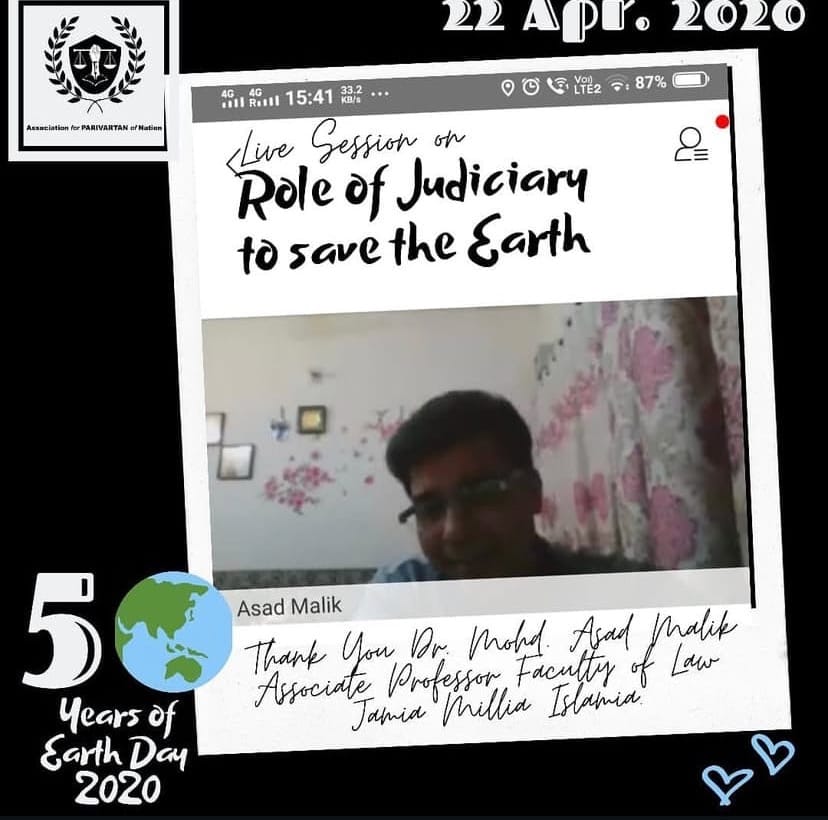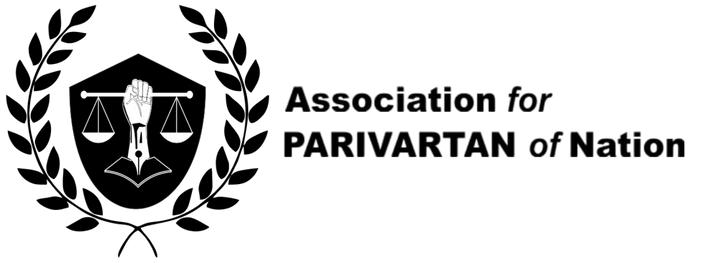Role of the Judiciary to Save the Earth
On 22nd April 2020, APNA marked the 50th World Earth Day with a virtual session on The Role of the Judiciary in Saving the World from the Climate Crisis. The session reaffirmed the climate crisis as both a legal and moral issue, urging the judiciary to act as a transformative force.

Linking Environmental Protection with Social Justice
On 22nd April 2020, marking the 50th anniversary of World Earth Day, APNA organised a live virtual session on the theme “The Role of the Judiciary in Saving the World from the Climate Crisis” The event, hosted via Cisco Webex, drew an audience of nearly 60 participants, a diverse mix of students, legal professionals, community workers, and climate activists who actively contributed with thought-provoking questions and reflections.
The keynote speaker, Dr Mohd Asad Malik, Associate Professor at the Faculty of Law, Jamia Millia Islamia, highlighted the pressing role of the judiciary in addressing climate change. He reminded the audience that under a capitalist economy, where corporate interests often override environmental concerns, it is the judiciary that must safeguard the rights of vulnerable communities working towards environmental protection. Dr Malik cautioned against the growing trend of state inaction on both health and climate matters, drawing a sharp parallel to the government’s handling of the COVID-19 pandemic. He argued that an independent and vigilant judiciary was not only necessary for upholding democratic principles but also for ensuring long-term climate resilience.
“The climate crisis will test our institutions more than any other challenge in history. When executives fail, the judiciary must rise to secure the fundamental rights of citizens and the survival of the planet." — Dr Malik
The session was highly interactive, with participants raising questions on landmark environmental cases in India, the balance between economic growth and ecological sustainability, and the judiciary’s power to hold states accountable for climate inaction.

Jai Vikrant, a participant from Hyderabad, reflected, “The discussion made me see the judiciary not just as a legal institution but as a moral compass that can guide us through the climate crisis. It gave me hope that accountability is possible.”
The 50th World Earth Day session reaffirmed the urgency of treating the climate crisis as a legal and moral issue, not merely an environmental one. By emphasising the judiciary’s duty to protect citizens against the threat of extreme climate events, Dr Malik reminded participants of the judiciary’s transformative potential. As he summed it up in the closing reflections, “The Earth cannot speak for itself in court, but we can. And it is the judiciary that must ensure those voices are heard.” Through such engagements, APNA continues its mission to educate, inspire, and mobilise communities to demand justice, not only for themselves but for future generations as well.

